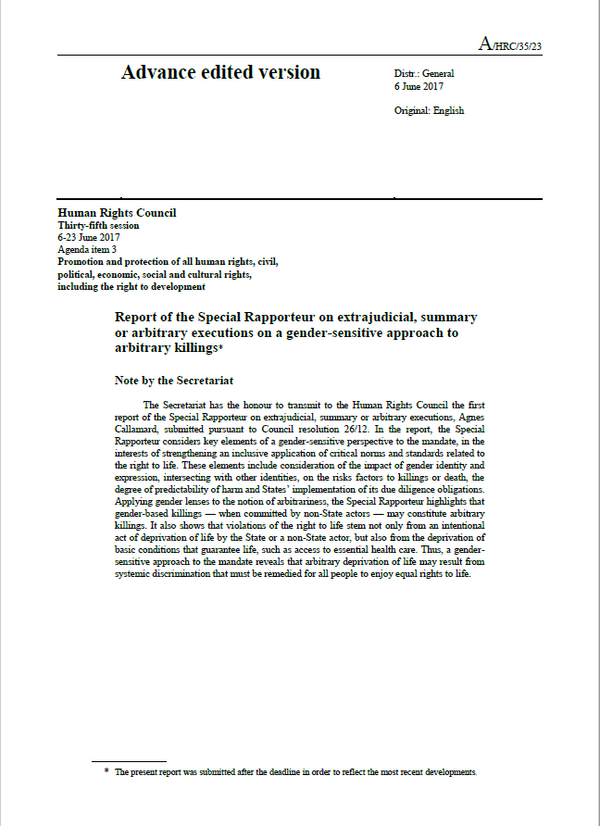Rapport du Rapporteur spécial sur les exécutions extrajudiciaires, sommaires ou arbitraires
Les recommandations incluent la découverte que les morts causées par le refus délibéré de services vitaux essentiels peuvent constituer des exécutions arbitraires, une conclusion qui pourrait être étendue au rejet de la réduction des risques. Pour en savoir plus, en anglais, veuillez lire les informations ci-dessous.
Abonnez-vous à l'Alerte mensuelle de l'IDPC pour recevoir des informations relatives à la politique des drogues.
The mandate on extrajudicial, summary or arbitrary killings has evolved over the years through various resolutions of the General Assembly and the Human Rights Commission and Council, and in response to violations of the right to life that member States have determined required a response.No international treaty explicitly defines extrajudicial, summary or arbitrary executions. However, such violations of the right to life have been commonly characterized as falling within the “public” domain, i.e., the domain of the State and its institutions, and understood to encompass killings involving State officials or private actors connected to the State, and to include armed conflict situations. While many steps have been taken over the past 20 years to broaden the reach and relevance of international human rights law, including by special procedure mandate holders, historically common characterizations have worked to exclude gender-related killings, which take place mainly in the so-called “private” sphere. When, in its application, the human rights framework fails to regard equally all loss of life, the consequences may be — however unintentionally — the perception that some arbitrary loss of life is of a lesser degree of gravity than other instances of arbitrary death.
Keep up-to-date with drug policy developments by subscribing to the IDPC Monthly Alert.
Téléchargements
Sujets
Régions
Profils associés
- UN High Commission for Human Rights
